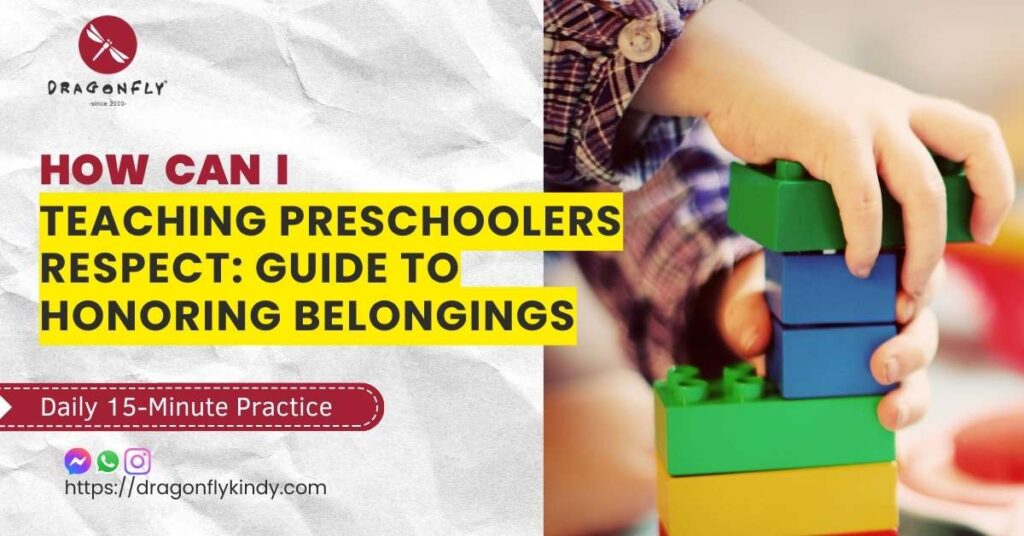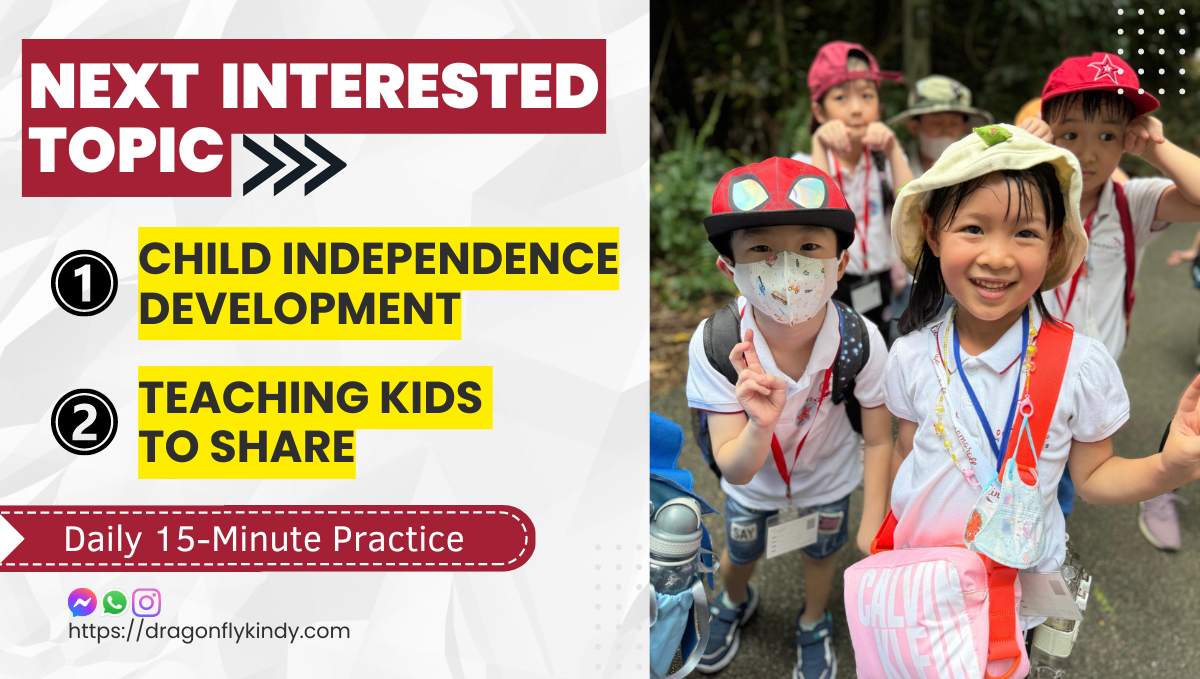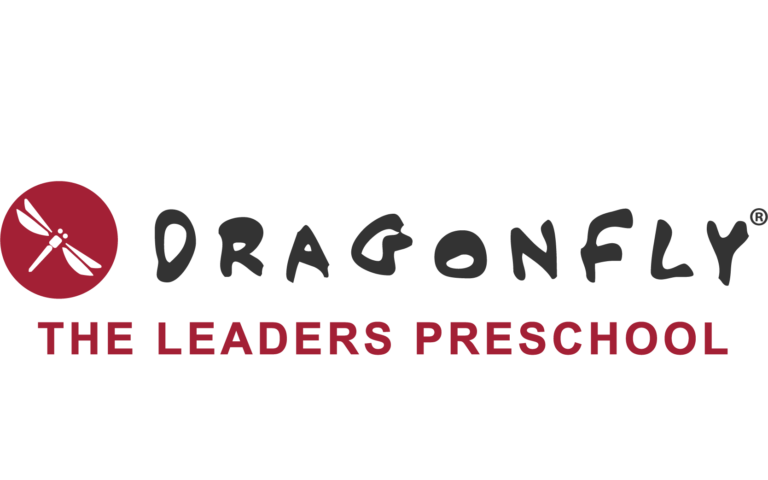- INTRODUCTION
- CASE SCENARIO
- STEP SIMPLICITY RATING
- 15-MINUTE TEACHING PRESCHOOLERS RESPECT STEP-BY-STEP GUIDE
- CONCLUSION
- START YOUR CHILD'S JOURNEY TOBUILD A SELF-RELIANT LEADER
- FREQUENCY ASKED QUESTIONS
- How can I teach my preschooler to respect others' belongings?
- What are some games to teach young children about personal property?
- Why do preschoolers struggle with respecting others' things?
- How can I use preschool respect lessons to help my child understand the importance of asking before taking something?
- What are some effective toddler property awareness activities for children who often take toys from siblings?
- Are there any early childhood respect education programs specifically designed for 2-5 year old kids?
- How often should I practice teaching preschoolers respect exercises with my child?
- How can preschool respect lessons improve toddler property awareness?
- There are several engaging activities that can enhance toddler property awareness as part of preschool respect lessons:
- NEXT INTERESTED TOPICS
- THE MOST POPULAR TOPIC
INTRODUCTION #
NURTURING RESPECT IN EARLY CHILDHOOD #
Teaching preschoolers respect, particularly when it comes to personal property, is a crucial aspect of early childhood education. This foundational skill not only shapes a child's understanding of boundaries but also significantly impacts family dynamics. Progressive educational institutions like Dragonfly Preschool recognize the importance of teaching preschoolers respect, integrating it into their core curriculum.
INNOVATIVE SOLUTION #
To address the challenge of teaching respect to preschoolers, educators and parents are turning to a groundbreaking approach that promises significant results.The "15-Minute Daily Dialogue Practice" method is an innovative approach to teaching preschoolers respect. This technique aligns with Dragonfly's "Self-Reliant Leaders Program", focusing on cultivating essential life skills and responsibilities. By dedicating just 15 minutes each day to focused, respectful dialogue, parents can significantly enhance their preschoolers' understanding of personal property and respect for others' belongings.
ADDRESSING REAL-LIFE CHALLENGES #
Understanding the everyday situations where respect for personal property becomes an issue is crucial for implementing effective solutions.Preschoolers often face real-life challenges when it comes to respecting others' property. For instance, a child might take their sibling's toy without asking, or use a classmate's art supplies without permission. These issues typically stem from a lack of understanding about personal property rights and the importance of ownership. The "15-Minute Daily Dialogue Practice" method addresses these challenges by providing practical activities for teaching respect to young children, helping them develop a deeper understanding of personal boundaries and respect.

CASE SCENARIO #
Let’s explore a common scenario that many parents face when teaching preschoolers respect:
Mom: “Emma, where did you get that doll? I don’t remember buying it for you.”
Emma: “I found it in Sarah’s backpack. It’s so pretty!”
Mom: “Emma, you shouldn’t take things from Sarah’s backpack without asking. That’s not okay.”
Emma: “But I want to play with it! Sarah has so many dolls!”
Mom: (sighs) “Emma, please return the doll to Sarah’s backpack. We don’t take things that don’t belong to us.”
Emma: (pouts) “But why? I’m just borrowing it!”
This scenario highlights the challenge parents face when teaching preschoolers about personal property. Despite the mother’s attempt to explain the concept, Emma struggles to understand why she can’t play with Sarah’s doll. This situation calls for a more effective approach to teaching respect to young children.
STEP SIMPLICITY RATING #
15-MINUTE TEACHING PRESCHOOLERS RESPECT
STEP-BY-STEP GUIDE #
The “15-Minute Daily Dialogue Practice” method for teaching preschoolers respect aligns with Dragonfly’s “Self-Reliant Leaders Program”, which focuses on enhancing communication and social interaction skills. This practice helps children express ideas, cooperate, and effectively solve problems related to respecting others’ belongings. Here’s a step-by-step guide:
Step 1: Introducing the Concept of Respect #
- Recognize common scenarios where children resist independent play and understand the importance of addressing this for child independence development.
Example dialogue:
Parent: ‘Emma, do you know what ‘respect’ means?’
Child: ‘Being nice?’
Parent: ‘That’s part of it! Respect also means treating others and their things with care. Let’s learn more about it.’
Step 2: Storytelling for Understanding #
- Use a relatable story to illustrate the importance of respecting others’ belongings.
Example dialogue:
Parent: ‘Let me tell you a story about Hoppy the bunny. Hoppy loved playing with his friend Fluffy’s toys without asking. One day, Fluffy felt sad because she couldn’t find her favorite toy…’
Child: (listens intently)
Parent: ‘How do you think Fluffy felt when Hoppy took her toys without asking?’
Step 3: Role-Play Exercise #
- Engage in role-play to help the child understand different perspectives.
Example dialogue:
Parent: ‘Let’s pretend I’m you, and you’re Sarah. I’ll take your favorite toy without asking.’
Child: (acts as Sarah) ‘Hey, that’s mine!’
Parent: ‘How does it feel when someone takes your things without asking?’
Child: ‘I don’t like it. It makes me sad.’
Step 4: Guiding to a Solution #
- Help the child understand the correct way to handle others’ belongings.
Example dialogue:
Parent: ‘What could you do if you want to play with Sarah’s doll?’
Child: ‘Ask her?’
Parent: ‘Exactly! Asking first shows respect. Let’s practice how to ask politely.’
Step 5: Reflection and Commitment #
- Encourage reflection on the lesson and commitment to respectful behavior.
Example dialogue:
Parent: ‘What did you learn about respecting others’ things?’
Child: ‘I should ask before taking something.’
Parent: ‘That’s right! Can you promise to always ask before using someone else’s things?’
Child: ‘Yes, I promise.’
By consistently applying this 15-minute practice, parents can help their preschoolers develop a deeper understanding of respect, especially concerning others’ belongings. This method aligns with Dragonfly’s “Self-Reliant Leaders Program” by fostering communication skills, encouraging problem-solving, and promoting considerate behavior. Through storytelling, role-play, and guided reflection, children learn to ask permission, show care for others’ possessions, and understand the importance of respect in their daily interactions.
CONCLUSION #
The “15-Minute Daily Dialogue Practice” method offers a practical and effective approach to teaching preschoolers respect, particularly concerning personal property. This technique aligns with Dragonfly’s “Building Self-Reliant Leaders” philosophy, emphasizing the importance of teaching preschoolers respect as a fundamental life skill.
Parents should remember that consistency is key when implementing activities for teaching respect to young children. There may be challenges along the way, but with patience and regular practice, preschoolers can develop a strong understanding of personal boundaries and respect for others’ belongings.
It’s important to note that parental behavior plays a significant role in how children perceive respect and personal property. For example, if parents frequently borrow items without asking, children may mimic this behavior. Dragonfly’s approach to parent-school collaboration addresses these issues, ensuring a consistent message about respect both at home and in school. Remember, teaching preschoolers respect is not just about correcting behavior, but about instilling values that will serve them throughout their lives.
START YOUR CHILD'S JOURNEY TOBUILD A SELF-RELIANT LEADER #
FREQUENCY ASKED QUESTIONS #
How can I teach my preschooler to respect others' belongings? #
Start with simple explanations, use role-play activities, and consistently model respectful behavior. The “15-Minute Daily Dialogue Practice” can be an effective method.
What are some games to teach young children about personal property? #
“My Things, Your Things” sorting game, “Ask Before You Take” role-play, and “Respecting Toys” clean-up time game are great options.
Why do preschoolers struggle with respecting others' things? #
Preschoolers are still developing their understanding of ownership and empathy. Their natural curiosity and impulsiveness can sometimes override their understanding of boundaries.
How can I use preschool respect lessons to help my child understand the importance of asking before taking something? #
Use storytelling and role-play scenarios that demonstrate the consequences of taking things without permission, and praise your child when they ask first.
What are some effective toddler property awareness activities for children who often take toys from siblings? #
Try the “Share and Take Turns” timer game, create a “Borrowing Box” for shared toys, and use positive reinforcement when they ask before taking.
Are there any early childhood respect education programs specifically designed for 2-5 year old kids? #
Yes, many preschools offer programs focusing on social skills and respect. Dragonfly’s “SRL Independence Program” is an excellent example.
How often should I practice teaching preschoolers respect exercises with my child? #
Aim for daily practice, even if it’s just for 15 minutes. Consistency is key in reinforcing respectful behavior.
How can preschool respect lessons improve toddler property awareness? #
Preschool respect lessons play a crucial role in developing toddler property awareness. These lessons teach young children to understand and value personal belongings, both their own and others’. Through activities like role-playing, storytelling, and guided discussions, preschoolers learn to recognize boundaries, ask for permission, and understand the concept of ownership. These lessons not only enhance their property awareness but also lay the foundation for respectful behavior in all aspects of life.
There are several engaging activities that can enhance toddler property awareness as part of preschool respect lessons: #
1. “Mine, Yours, Ours” sorting game: Use different colored bins to categorize items as personal or shared.
2. “Ask First” role-play: Practice scenarios where children ask permission before using others’ belongings.
3. “Respect the Space” activity: Create personal areas for each child and teach them to respect others’ spaces.
4. “Share and Care” story time: Read books about sharing and respecting others’ property.
5. “Toy Hospital”: Teach children to care for toys (their own and others’) as if they were in a toy hospital.
These activities make learning about property respect fun and memorable for toddlers.
NEXT INTERESTED TOPICS #
After learning about teaching preschoolers respect for personal property, parents may be interested in expanding their knowledge to related areas of child development. The following topics build upon the foundation of respect and offer additional strategies for nurturing well-rounded, confident children.

CHILD INDEPENDENCE DEVELOPMENT #
This topic naturally extends from teaching respect by focusing on fostering independence in children. It provides parents with practical strategies to encourage self-reliance in daily activities.
Why this is important:
– Builds on the concept of personal responsibility
– Enhances children’s confidence and self-esteem
– Reduces parent-child conflicts over personal tasks
– Prepares children for future challenges and responsibilities
Learning to promote child independence complements the respect for personal property by teaching children to take care of their own belongings and respect others’ autonomy.
TEACHING KIDS TO SHARE #
This topic is a natural progression from understanding personal property, as it addresses the balance between respecting ownership and learning to share with others.
Why this is a natural progression:
– Builds on the foundation of understanding personal property
– Teaches children to balance personal rights with social responsibilities
– Enhances social skills and empathy
– Prepares children for cooperative play and group activities
Mastering the skill of sharing complements the respect for belongings by teaching children when and how to willingly offer their possessions to others, fostering a sense of community and generosity alongside respect for personal property.





